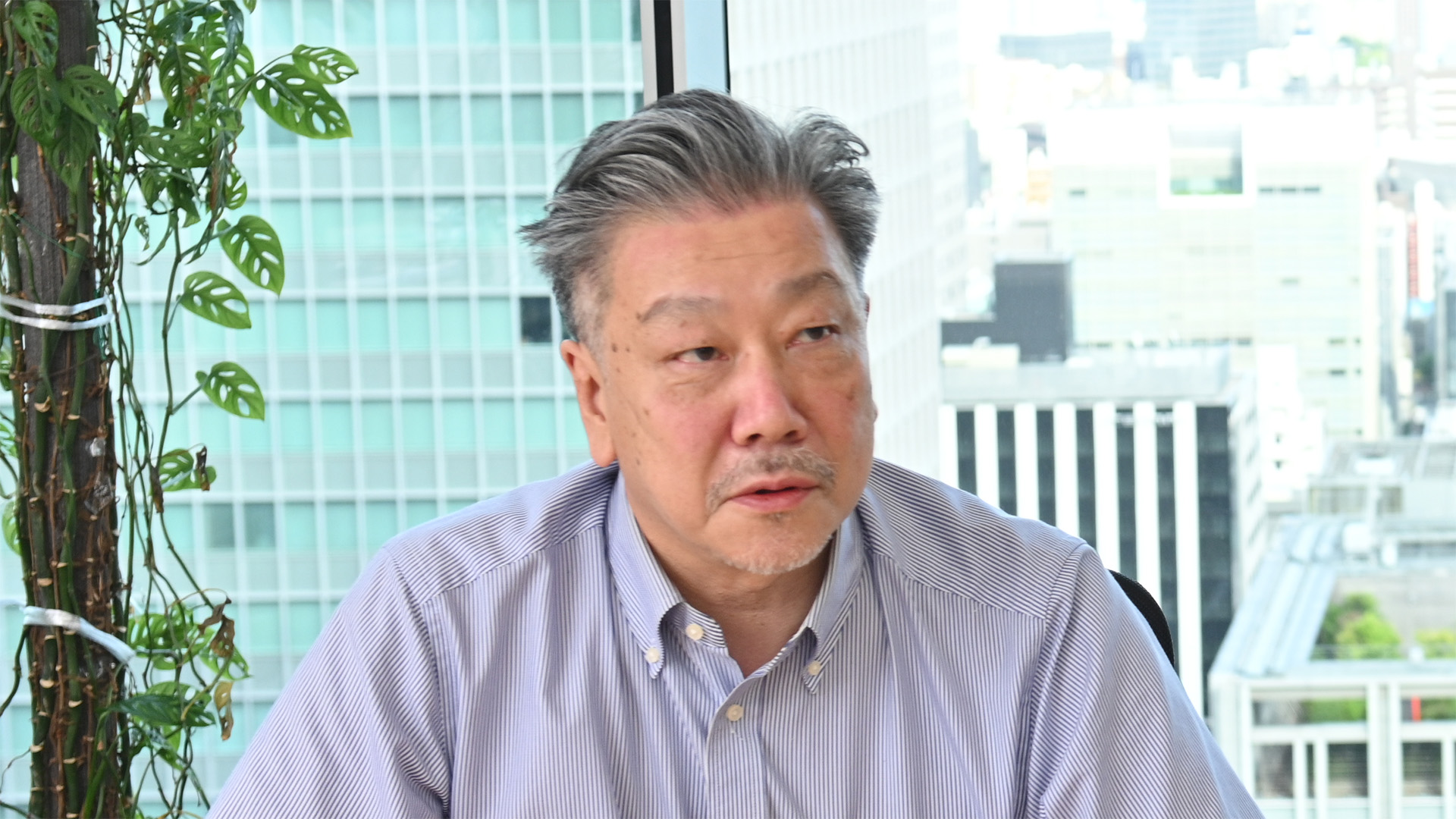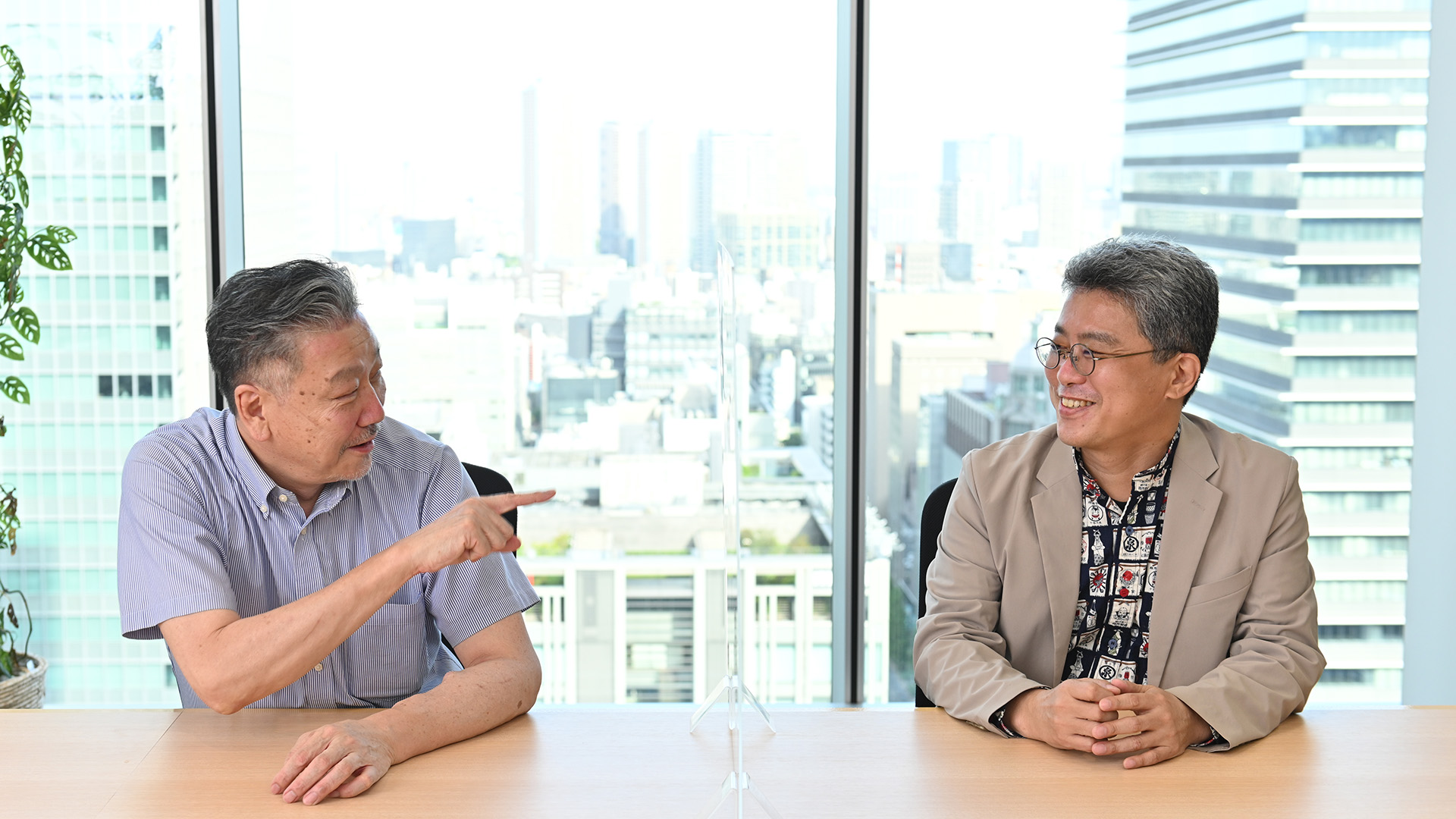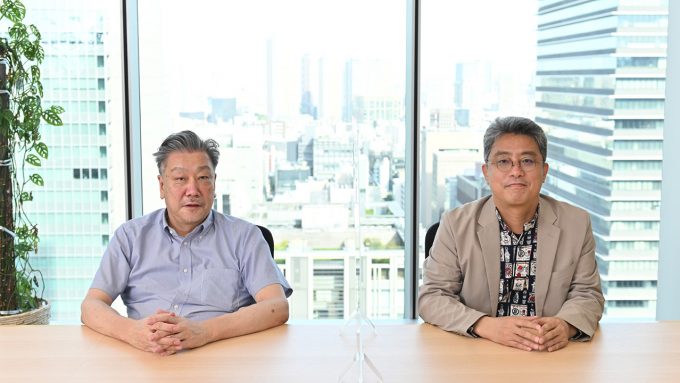WE DISCUSS VANA’DIEL is a series of conversations between Producer Matsui and special guests whom are familiar with FINAL FANTASY XI (FFXI). Our first guest is the original producer of FFXI, Hiromichi Tanaka. In this second part of a four-part conversation, he spoke about the period between FFXI’s development until its official release.

Previously affiliated with Square Enix (formerly Square) as a Game Producer and is one of the founding creators of the FINAL FANTASY series. Producer of FINAL FANTASY XI from the beginning of development until 2012. He is currently involved in game development as a Corporate Officer at GungHo Online Entertainment, Inc.
The beta version was nearly complete after about a year
The core systems of FFXI are very well made, whether it be for battle or chat. I assume you researched the fundamentals before entering the production phase, but could you elaborate on that?
- Tanaka
Actually, I’d say we didn't do much of anything that would be considered fundamental research. After all, it was nearly complete after a year and a half.
- Matsui
Looking back, I think it’s amazing that the original release version, often referred to as “1.0,” was produced in a year and a half.
- Tanaka
I believe we had something resembling the beta version by the first year. The first area we made was Ronfaure, I believe? During that period, we didn't have a lot of doubt regarding what to make.
Were there any major changes in direction during that one year period?
- Tanaka
When making a game, I often start with consolidating the user interface (UI), like how it'd be navigated with a controller or it should be mapped out on the screen. Once that's done, the game features are mostly determined by that point so there aren't any major deviations later on.
I see, so the UI determines the game’s features.
- Tanaka
Of course, we had examples like Ultima Online and EverQuest, which was a major factor. We made bird's-eye view games for the Nintendo Entertainment System (NES) and Super Nintendo Entertainment System (SNES), but when 3D graphics using polygons became prominent from the PlayStation onward, I was impressed that you could look up at the sky in a game. The desire to create a fantasy game where you explore a 3D space was a powerful motivation as we set upon creating an MMORPG.
What you mentioned earlier about “not having a lot of doubt about what to make” was quite remarkable.
- Tanaka
That reminds me, I remember I called for just one retake regarding battle development. In the official release, you can keep auto-attacking as you move to an enemy’s rear, but we originally used only full-body animations, which meant characters were forced out of their moving animation whenever they initiated an attack animation.
So attacks had awesome animations that used a character’s whole body, but prevented movement whenever they were used.
- Tanaka
I had everything from the animations upward redesigned, and motion blending was used to animate the upper and lower body independently of each other, which enabled gestures like attacking while moving or running away while taking damage. However, this meant redoing everything from scratch, so it probably broke the programming and animation teams’ hearts...
- Matsui
But if the finished product looked mediocre or had poor controllability, I’m sure the programmers would also say, “I’d like to redo this, if you can spare me the time.” (laughs)
- Tanaka
Game systems, especially those where the player can’t manipulate the controls as they like or feel like the game is commandeering their actions, can sometimes hurt the impression of a game.
- Matsui
On the other hand, there are methodologies such as disabling player controls to portray a spectacular battle, so it’s a debatable topic.

This is also battle-related, but swapping gear during battle is now a core game element in FFXI. Was this something you originally intended?
- Matsui
It was completely outside of our expectations. It all happened because we added macros to the game. (Laughs wryly)
Isn't it extremely taxing in terms of processing?
- Tanaka
In terms of swapping graphical elements around, it’s actually not as bad as you might think. Rather than processing it through the PlayStation 2’s (PS2) memory, the graphical resources necessary for the gear swap are read from the hard disk drive (HDD), so anything that’s no longer needed is immediately erased. The HDD is treated like a large memory in this case, so all that's required is the memory space to deploy the process.
In other words, there wasn’t a reason to prevent gear swapping.
- Tanaka
We didn't have any issues with opening the equipment window and switching out gear one by one. However, using macros to swap multiple pieces of gear at once to modify character stats during combat was a method we hadn't expected.
- Matsui
FFXI doesn’t have a clear definition when it comes to determining whether or not you're in battle. When you're in a party and you defeat a monster, other party members may still be fighting a different monster. It’s difficult to define whether you're in battle or not in that sort of situation, so it was therefore also hard to create a rule to prevent swapping gear in battle.
I was impressed that even when you gear swap right before using a weapon skill, it still reflects the stats of the gear you swapped to.
- Matsui
It's extremely lightweight compared to the load caused by graphics. However, after level sync was implemented, the processing load became quite heavy, partially due to the increased amount of data handled during battle.
Goals for a Global MMORPG
In addition to designing an MMORPG for the first time, I imagine the FFXI project pioneered many new areas for Square Enix, such as handling player feedback, planning for version updates and expansions, global operations, and more. How did you go about organizing these arrangements?
- Tanaka
When Sage Sundi (The first Global Online Producer for FINAL FANTASY XI), who was formerly involved in Ultima Online’s operations, and his entire team migrated from Electronic Arts Square, they brought over a variation of the policies for Ultima Online they had tweaked for FFXI. The Game Master team was also from Ultima Online, so we had a team of experienced veterans who proved to be a tremendous help.
Was your decision for a global release also influenced by Ultima Online?
- Tanaka
That was actually something we decided at the beginning of development. The time difference between Japan, North America, and Europe happens to be roughly eight hours apart, so we’d always speculated that we could host one global server instead of establishing a local server in each region. Which reminds me, it's amusing how the EverQuest team from Sony Online Entertainment also handled FFXI's Game Master operations in North America.
- Matsui
For languages, in addition to Japanese and English, we also planned for German and French from the start as well.
- Tanaka
Since we were creating an MMORPG, we’d always wanted to expand globally rather than limit ourselves to Japan. In order for that to happen, we also felt it was necessary to release the game on PC and Xbox in addition to the PS2. Which reminds me, they used the term “ubiquitous” back then instead of “cross-platform” as we do today.
- Matsui
FFXI’s item data was designed from the start to accommodate English text. However, I remember we had trouble implementing German and French since the languages were so different.
- Tanaka
Many German words are a combination of several different words, so they require a lot of characters. On the topic of words, I remember the Ultima Online team referred to update data as “patches,” but we intentionally didn’t follow suit. Some recent examples include iOS and Android OS, which refer to them as “version update” or “update” rather than “patch.” In older online games, the word “patch” was strongly associated with small fixes that were applied to remove bugs, just like a physical patch you might sew over a hole in clothing. In the case of FFXI, our updates primarily focused on expanding upon the game experience, so we purposefully decided to call them “version updates.”
Was that mostly based on your own philosophy, Mr. Tanaka?
- Tanaka
I guess so.
- Matsui
The development team, however, occasionally slips up and says “patch.” (laughs)

What aspects of FFXI are associated with Mr. Tanaka?
FFXI was finally released on May 16, 2002. What was your unbiased opinion of the finished product? Did you think it was a good game?
- Tanaka
Yes, of course. After FFIII, Mr. Ishii (Koichi Ishii, original director of FFXI) and I stepped away from the FF series, so we weren't all that familiar with the series from FFIV onward. Upon our return to make a new entry in the series, we had numerous discussions about what we had wanted to encapsulate in the original FF.
Is there anything that you feel you contributed to, or might have turned out a certain way because you were involved as the producer?
- Tanaka
I didn't chime in very often when it came to the world view and graphics. I believe game systems revolve around the UI, so when it came to how the game would be played or controlled, I handled those areas myself without delegating them.
- Matsui
In my opinion, the FF series owes its longevity to FFI through FFIII. The staff members of my generation had joined the company with the mindset that FFI through FFIII was the FF series, which reflects in the FF games we made, whether it be through the jobs, world view, or some other element. In that sense too, FFXI is Mr. Tanaka's game.
- Tanaka
However, I focus on game features over the lore or story, so there may not be a lot that can be considered part of the “Tanaka art style.” I've was only in charge of the scenario for Secret of Mana, Trials of Mana, and Final Fantasy Legend II, so I guess I’m not too fond of writing stories. (laughs)
However, with that said, there are certain elements that Mr. Matsui attributes to Mr. Tanaka, right?
- Matsui
I think firmly establishing a development environment is part of what I attribute to Mr. Tanaka. When he's in the team, it’s like an assurance that the game will be completed. Depending on the project, there are some cases where new members are dumped into the team in hopes that it’ll help complete the game, but it only serves to worsen the situation. That doesn't happen with Mr. Tanaka's teams. That’s how I saw it as a fellow employee, even when I was in another team.
What’s the reason behind that sense of assurance?
- Matsui
The biggest reason is that during the planning phase, Mr. Tanaka designs things to be completable. Everyone tends to be ambitious during the planning meeting and all sorts of ideas are tossed around. Someone has to organize and compile them later on, but if they're the kind of person that's weak under pressure, they end up listening to everyone's unreasonable demands. However, Mr. Tanaka oversaw things to ensure that never happened.
On another note, what are aspects that you attribute to Mr. Ishii, the original director?
- Tanaka
Mr. Ishii is impressive in that he can come up with an endless number of ideas, but he doesn't know when to stop. Even when the deadline is the next day, he’d be like, “How about this?” and suggest something that would take about three months to develop. You have to be able to listen without taking everything too seriously or it’ll be difficult for you. (laughs)
Was he like that before FFXI?
- Tanaka
He's been like that from before. (laughs) However, a world like Vana’diel wouldn’t exist without him. In that sense, I’d say he has more writing talent than me.




